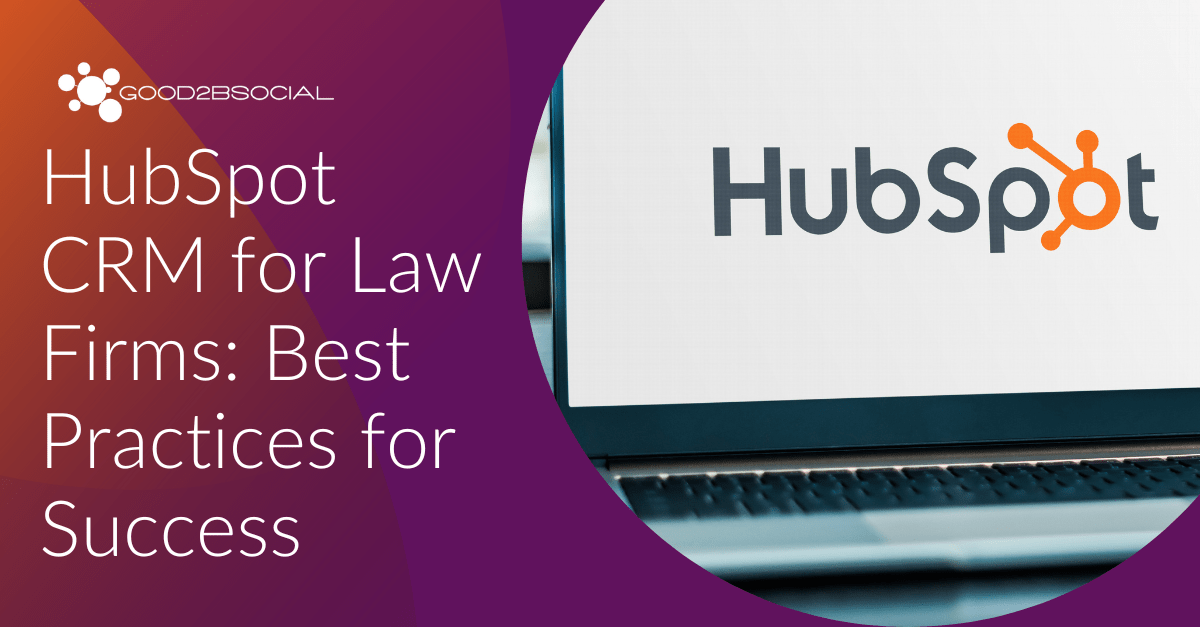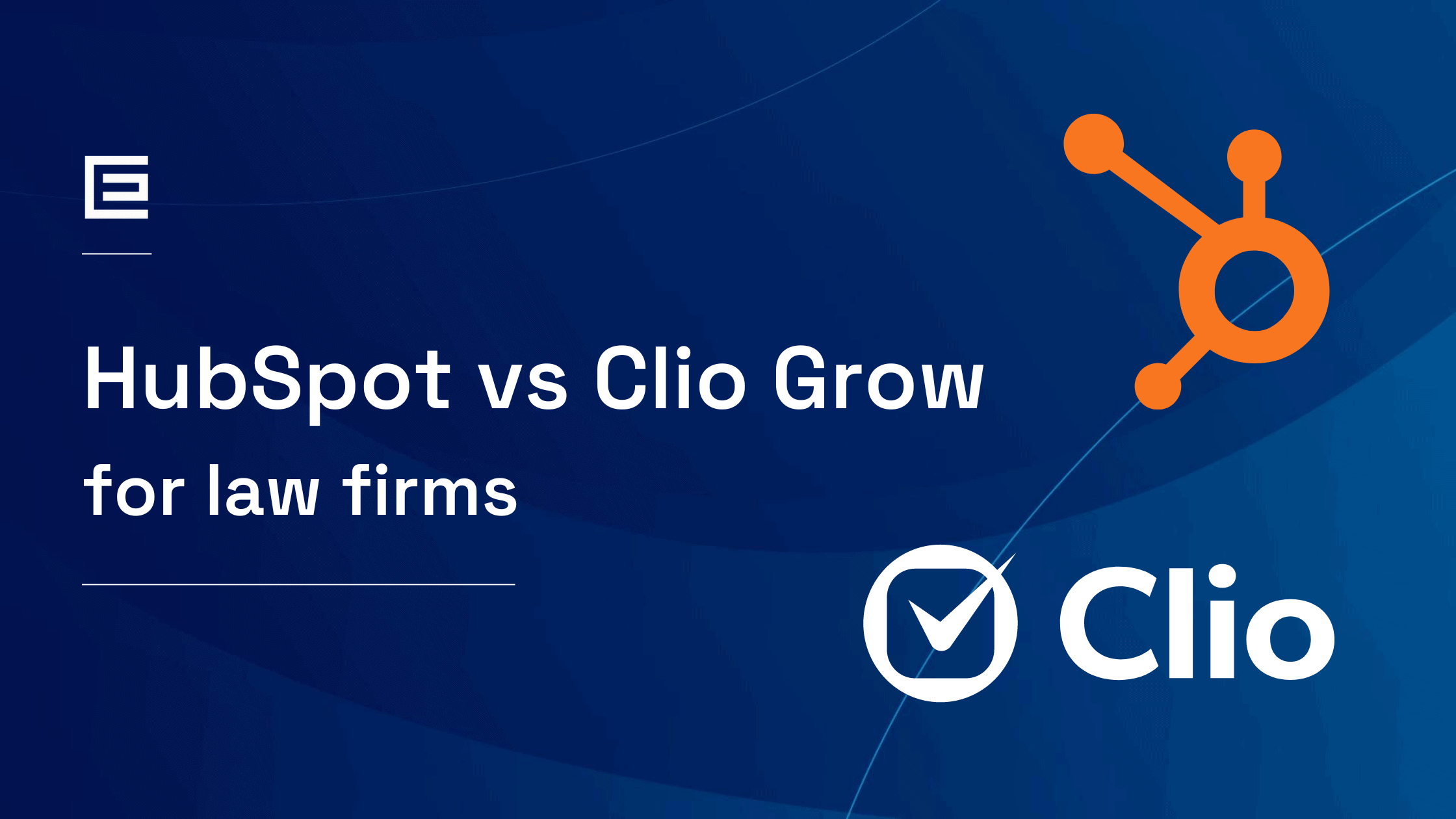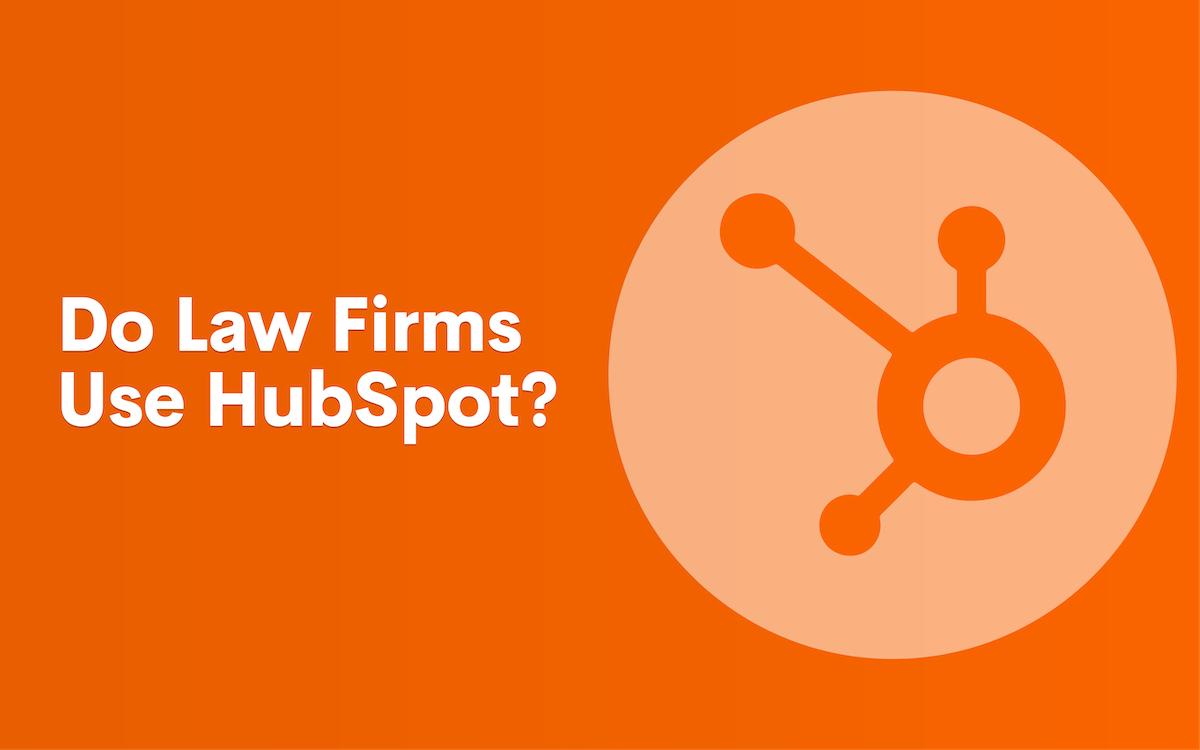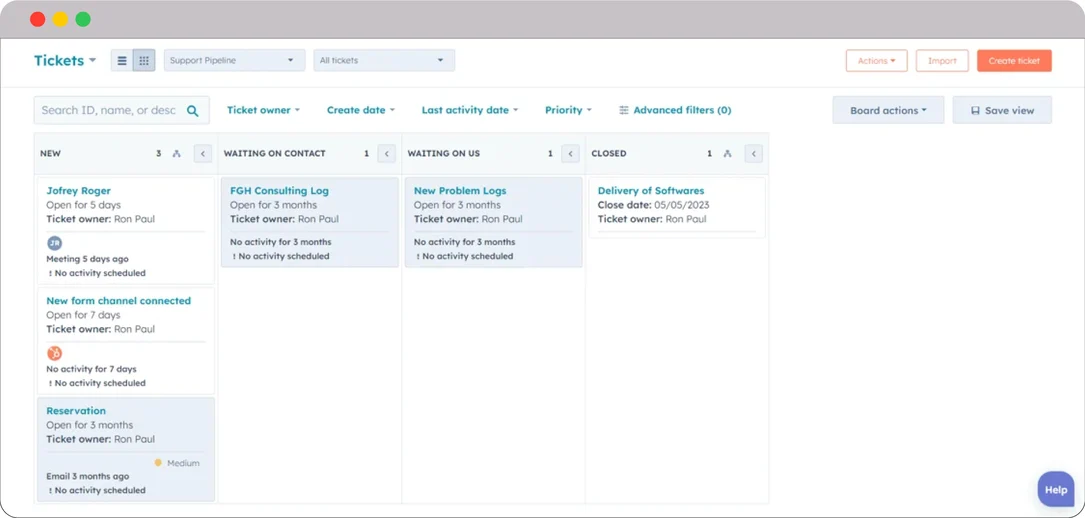In the competitive landscape of legal services, effective marketing and client management are essential. HubSpot for law firms offers a comprehensive solution to streamline operations and enhance client engagement.
In today’s fast-paced legal environment, law firms must leverage technology to stay ahead. HubSpot, a leading customer relationship management (CRM) platform, provides law firms with the tools they need to attract, engage, and delight clients. From marketing automation to client management, HubSpot can transform how law firms operate, making them more efficient and client-focused.
This blog post will explore how HubSpot can benefit law firms, the features that make it an ideal choice, and actionable tips for implementation. Whether you’re a small practice or a large firm, understanding how to utilize HubSpot effectively can lead to significant improvements in your marketing efforts and client relationships.

Source: www.linkedin.com
Key Takeaways
- HubSpot offers a suite of tools tailored for law firms, including marketing automation, CRM, and analytics.
- Implementing HubSpot can streamline client management and improve lead generation.
- Understanding HubSpot’s features can help law firms enhance their online presence and client engagement.
- Actionable tips for using HubSpot effectively will be provided throughout the article.
What is HubSpot?
HubSpot is a powerful CRM platform that provides a range of tools for marketing, sales, and customer service. It is designed to help businesses grow by attracting visitors, converting leads, and delighting customers. For law firms, HubSpot offers specific features that cater to the unique needs of legal professionals.
Why Law Firms Should Consider HubSpot
Law firms face unique challenges in marketing and client management. Traditional marketing methods may not yield the desired results, and managing client relationships can be time-consuming. HubSpot addresses these challenges by providing an integrated platform that simplifies marketing and client interactions.
Benefits of Using HubSpot for Law Firms
Streamlined Marketing Efforts: HubSpot’s marketing automation tools allow law firms to create targeted campaigns, manage social media, and track performance metrics all in one place.
Enhanced Client Management: The CRM feature helps law firms keep track of client interactions, manage leads, and maintain relationships effectively.
Data-Driven Insights: HubSpot provides analytics that help law firms understand their audience better and refine their marketing strategies.
Improved Lead Generation: With tools for landing pages, forms, and email marketing, HubSpot can significantly enhance lead generation efforts.
User-Friendly Interface: HubSpot is designed to be intuitive, making it accessible for legal professionals who may not have a technical background.
Dr. Jane Smith, Legal Marketing Expert: “HubSpot has transformed how my firm approaches client engagement and marketing. The ease of use and comprehensive features are invaluable.”
How HubSpot Works for Law Firms
To maximize the benefits of HubSpot, law firms need to understand how to implement its features effectively. Below, we break down the key components of HubSpot that are particularly beneficial for legal practices.
Marketing Hub
The Marketing Hub is designed to attract visitors and convert leads. Here are some of its key features:
Content Management System (CMS): Create and manage your law firm’s website with ease. HubSpot’s CMS allows for easy updates and optimizations for SEO.
Email Marketing: Design and send targeted email campaigns to nurture leads and keep clients informed.
Social Media Management: Schedule and publish posts across various platforms, track engagement, and analyze performance.
Landing Pages and Forms: Create custom landing pages and forms to capture leads effectively.
Summary of Marketing Hub Features
The Marketing Hub provides law firms with the tools to create a strong online presence, engage with potential clients, and convert leads into clients. By utilizing these features, firms can enhance their marketing strategies and improve their overall effectiveness.

Source: www.theedigital.com
Sales Hub
The Sales Hub focuses on managing leads and client relationships. Key features include:
CRM: Keep track of all client interactions, manage leads, and maintain a comprehensive database of contacts.
Pipeline Management: Visualize your sales process and track the progress of leads through different stages.
Email Tracking: Monitor when clients open emails and engage with your content.
Meeting Scheduling: Simplify the process of scheduling meetings with clients through integrated calendar tools.
Summary of Sales Hub Features
The Sales Hub is essential for law firms looking to streamline their client management processes. By effectively managing leads and client interactions, firms can improve their conversion rates and build stronger relationships.

Source: www.youtube.com
Service Hub
The Service Hub is designed to enhance client satisfaction and retention. Key features include:
Ticketing System: Manage client inquiries and issues efficiently.
Knowledge Base: Create a repository of resources for clients, including FAQs and legal guides.
Client Feedback Tools: Gather feedback from clients to improve services and address concerns.
Summary of Service Hub Features
The Service Hub helps law firms maintain high levels of client satisfaction. By providing excellent service and addressing client needs promptly, firms can foster loyalty and encourage referrals.

Source: www.lawmatics.com
Actionable Steps for Implementing HubSpot in Your Law Firm
To get started with HubSpot, follow these actionable steps:
Define Your Goals: Determine what you want to achieve with HubSpot. This could include increasing website traffic, generating more leads, or improving client retention.
Set Up Your Account: Create a HubSpot account and familiarize yourself with the dashboard and features.
Integrate Your Tools: Connect HubSpot with other tools you use, such as email, calendar, and social media accounts.
Create a Content Strategy: Develop a content plan that includes blog posts, social media updates, and email campaigns to attract and engage clients.
Utilize Analytics: Regularly review your analytics to understand what is working and where improvements can be made.
Train Your Team: Ensure that your team is trained on how to use HubSpot effectively. Consider hosting training sessions or providing resources for learning.
Monitor and Adjust: Continuously monitor your results and adjust your strategies as needed to optimize performance.
John Doe, Law Firm Owner: “Implementing HubSpot was a game-changer for our practice. The insights we gained helped us refine our approach and connect better with clients.”
Common Challenges and Misconceptions
While HubSpot offers numerous benefits, law firms may encounter challenges when implementing the platform. Here are some common misconceptions and solutions:
Misconception 1: HubSpot is Only for Large Firms
Many believe that HubSpot is only suitable for large firms with extensive marketing budgets. However, HubSpot offers scalable solutions that can benefit firms of all sizes. Small and mid-sized firms can leverage HubSpot’s features to compete effectively in their markets.
Misconception 2: HubSpot is Too Complicated
Some law firms may hesitate to adopt HubSpot due to concerns about complexity. While there is a learning curve, HubSpot is designed to be user-friendly. With proper training and support, firms can quickly become proficient in using the platform.
Misconception 3: HubSpot is Just Another CRM
While HubSpot does function as a CRM, it offers much more than traditional CRM systems. Its marketing and service hubs provide comprehensive tools for attracting clients, managing relationships, and delivering exceptional service.
Solutions to Overcome Challenges
Invest in Training: Provide your team with training resources to ensure they understand how to use HubSpot effectively.
Start Small: Begin with a few key features and gradually expand your use of HubSpot as your team becomes more comfortable.
Utilize HubSpot Resources: Take advantage of HubSpot’s extensive library of resources, including tutorials, webinars, and community forums.

Source: www.webdew.com
Frequently Asked Questions about HubSpot for Law Firms
1. What is HubSpot, and how can it benefit my law firm?
HubSpot is a CRM platform that offers marketing, sales, and service tools. It can benefit law firms by streamlining client management, enhancing marketing efforts, and providing data-driven insights.
2. Is HubSpot suitable for small law firms?
Yes, HubSpot is scalable and can be tailored to meet the needs of small, mid-sized, and large law firms.
3. How can I get started with HubSpot?
To get started, create an account, define your goals, set up your tools, and develop a content strategy. Training your team is also essential for successful implementation.
4. What features should I focus on first?
Start with the Marketing Hub to enhance your online presence and lead generation. Once comfortable, explore the Sales and Service Hubs for client management and support.
5. Can I integrate HubSpot with other tools?
Yes, HubSpot can be integrated with various tools, including email, calendars, and social media platforms, to streamline your workflow.
Conclusion
HubSpot offers law firms a powerful suite of tools to enhance their marketing, sales, and client service efforts. By understanding and implementing HubSpot’s features, law firms can improve their client engagement, streamline operations, and ultimately grow their practice.
As you consider adopting HubSpot, remember to define your goals, invest in training, and continuously monitor your results. The potential for growth and improved client relationships is significant, and taking action now can set your firm on the path to success.
Explore additional resources, subscribe for updates, or leave a comment below to share your thoughts on using HubSpot for your law firm.
Watch This Video on HubSpot for law firms






